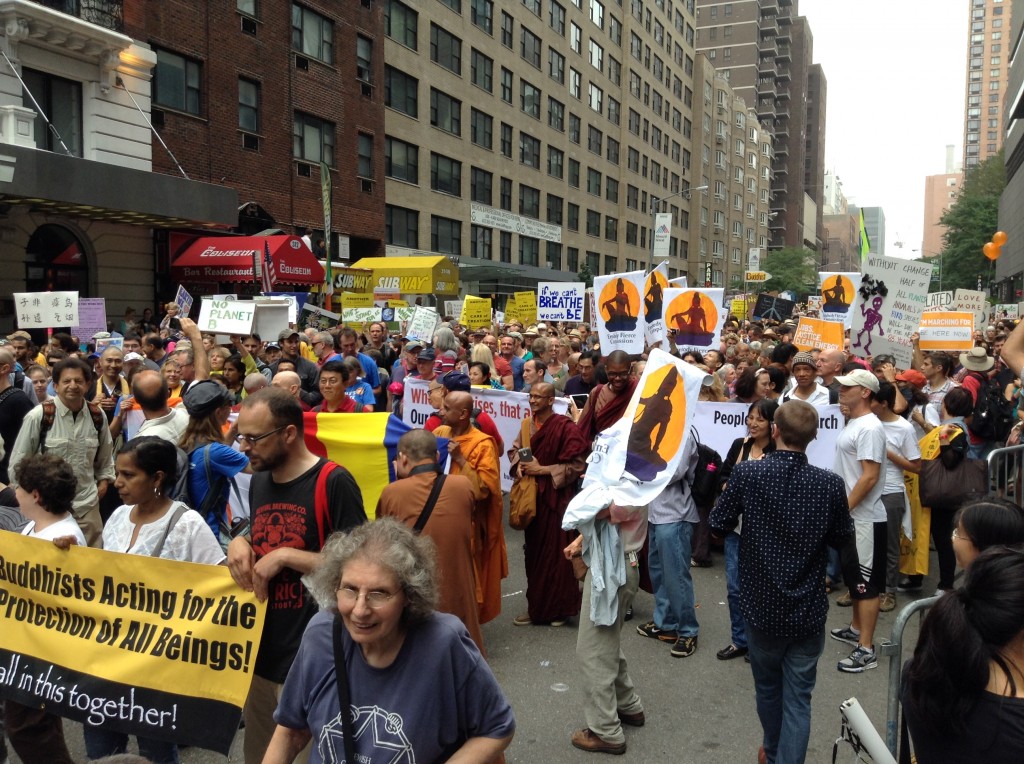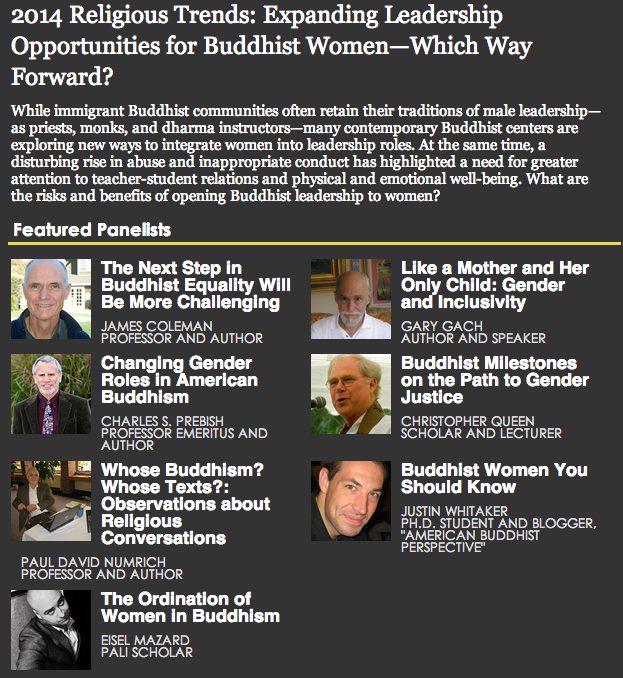
…Or, rather, let’s talk about sexual assault.
In case you’ve missed it, another sex scandal has come to light in Buddhist America, this time at the Mount Baldy Zen Center here in Southern California. The New York Times first reported the story in the press, and others followed shortly thereafter, including The Los Angeles Times. In a nutshell, according to an investigation by members of the American Zen Teachers Association, the Zen Center’s abbot, Joshu Sasaki Roshi, “groped and sexually harassed female students for decades…[and] his supporters looked the other way.”
There has been a flurry of responses and commentaries, many of them available to read online. Of special note are my friend and Patheos colleague Roshi James Ishmael Ford’s post over at Monkey Mind; three separate posts by Barbara O’Brien at her blog; two posts by Brad Warner at his; two posts by Kusan Peter Schireson at Sweeping Zen; a post by David Loy at Sweeping Zen; and a post by Sweeping Zen’s editor Adam Tebbe (whose work has been very important in bringing this scandal to light).
I’ve been thinking a lot about one particular line in James’ piece: “Sex isn’t the problem.” Over at Tricycle‘s Awake in the World blog, the great Emma Varvaloucas whittles James’ basic argument down to this: “the [real] problem is our glamorization of our spiritual teachers, as well as the lack of institutional and personal accountability.” I agree that these are certainly problems and that everything James says about them is basically right, and in a way I also agree with him that sex isn’t the problem. Sex isn’t the problem because it isn’t what’s being alleged here, is it? What’s being alleged are acts of violence and misogyny.
This is part of the reason I’m surprised that a good bit of the blog-talk elsewhere on this matter has revolved around the perennial question of sexual/romantic relationships between teachers and students and whether this constitutes a kind of sexual misconduct (in the Buddhist sense). This is a somewhat relevant question, to be sure, but not what’s at issue.
I would argue that what’s at issue is, again, violent crime and misogyny.
Like Barbara, I think that the most important next step will be “educating others, especially the menfolk, that the groping thing is seriously bad.” It seems to me from some of the conversation that there might be some confusion about sexual assault, what exactly it is, and how we should respond. (There’s a lot of this sort of confusion going around SoCal, as it turns out…) So let’s have a clarification session, shall we?
What is being accused here (fondling, groping, other unwanted sexual behavior) meets the legal definition of “sexual assault,” which is articulated by the United States Department of Justice’s Office on Violence Against Women in this way:
Sexual assault is any type of sexual contact or behavior that occurs without the explicit consent of the recipient. Falling under the definition of sexual assault are sexual activities as forced sexual intercourse, forcible sodomy, child molestation, incest, fondling, and attempted rape.
Sexual assault is a crime, and, according to the American Medical Association, “the most rapidly growing violent crime in America.”
RAINN (Rape, Abuse and Incest National Network) reports that someone in the U.S. is sexually assaulted every two minutes. In addition, “according to the U.S. Department of Justice’s National Crime Victimization Survey, there is an average of 207,754 victims (age 12 or older) of rape and sexual assault each year.”
While I appreciate so very much that Barbara brought the conversation back to the issue of sexual assault, she did get one thing wrong not quite right when she said that “most of the time being randomly groped doesn’t do permanent damage.” Again, according to RAINN, victims of sexual assault are in fact “3 times more likely to suffer from depression; 6 times more likely to suffer from post-traumatic stress disorder; 13 times more likely to abuse alcohol; 26 times more likely to abuse drugs; and 4 times more likely to contemplate suicide.”
RAINN goes on to note that “54% of rapes/sexual assaults are not reported to the police, according to a statistical average of the past 5 years.” Related to this is the striking fact that “73% of sexual assaults were perpetrated by a non-stranger.”
Sexual assault is not a kind of flirtation. It has nothing to do with romance or even lust per se; it has to do with violence and domination. Furthermore, it’s a criminal act.
If, as my esteemed UWest colleague Dr. Lewis Lancaster has said, “the one thing that all forms of Buddhism hold as their highest ideal is compassion [a deep response to the sufferings of others],” then there can be no room — zero — for sexual assault in our communities. It must be confronted head-on and immediately.
So why do we keep hearing the same stories about abuses of power or sexual assault by teachers, and the subsequent silence or worse in response from the communities in which they happen? In a guest post that she wrote for my personal website back when the Eido Shimano scandal broke, my friend Roshi Joan Halifax said something that I think is still relevant today:
…For too long in the West, and I am sure in the East, gross misogyny has existed in the Buddhist world, a misogyny so deep that it has allowed the disrespect and abuse of women and nuns in our own time, and not only throughout history, and not only in Asia. The misogynistic abuse is not only in terms of the usual gender issues related to who has responsibility and authority (women usually don’t have much, if any), but it is as well expressed through mistreatment of women, through sexual boundary violations of women, and the psychological abuse of women…
It will take a while for us to fully understand why we as Buddhists took so long to act. If [any of these teachers] had been a doctor, lawyer, or psychotherapist, there would have been rapid social and legal consequences. But there is something about our religions, whether Catholic, Protestant, Jewish, Islam, or Buddhist, that disallows us facing the shame associated with sexual violations and the gross gender issues that plague most, if not all, religions…
It is not only a matter of the sexual violation of women and the painful violation of boundaries that are based in trust between teacher and student, it is as well a matter of the violation of the core of human goodness; for [their] behavior is also a violation of the entire Buddhist community, as well as the teachings of the Buddha which are uncompromising with respect to the unviability of killing, lying, sexual misconduct, wrongful speech, and consuming intoxicants of body, speech and mind. The northstar of goodness has been lost from sight in the long and recent past, and we are all suffering because we cannot see how deep the wound is to the heart of our world and to the coming generations.
Protections, dialogue, education are all necessary at this time. And a commitment to not forgetting……… as well as vowing to not repeat the mistakes of the past, and to practice a compassion that is clear and brave, liberating and just.
Every time one of these scandals breaks, we talk about the power differential, appropriate relationships between teachers and students, and everything else but misogyny. We don’t want to believe that it has crept into Buddhism and our individual communities, I think. We want to believe we’re better than that. But the practice Roshi Joan asks us to undertake here — “compassion that is clear and brave, liberating and just” — is essential. It won’t be easy work, but it will be work that benefits all beings, and, in the end, isn’t that why we’re all practicing?
Every two minutes, someone in the U.S. is sexually assaulted… That Buddhist teachers contribute to this unacceptable statistic should break all of our hearts and call us to do more, to do better.
Finally, if someone engages in any type of sexual contact or behavior with you without your explicit consent, it is not a teaching. It is an act of violence and it’s against the law. For help or support, please call the National Sexual Assault Hotline at 1-800-656-HOPE or the National Sexual Violence Resource Center (NSVRC) at 1-877-739-3895.











